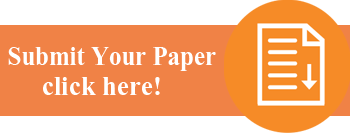THE CHALLENGES AND OPPORTUNITIES OF KURIKULUM MERDEKA IMPLEMENTATION IN INDONESIAN SCHOOLS
Keywords:
challenges, opportunities, Kurikulum Merdeka, Indonesian schoolsAbstract
This study examined the challenges and opportunities associated with implementing Curriculum Merdeka, a new curriculum reform initiative, in Indonesian schools. Data were collected from 20 teachers and ten school administrators across 15 schools in three provinces through semi-structured interviews and focus group discussions. The study found that the implementation of Kurikulum Merdeka faced challenges related to a lack of resources and infrastructure, inadequate training and support for teachers, and a heavy burden on teachers. However, the new curriculum also provided opportunities for more student-centered and interdisciplinary Learning, teacher professional development, and more significant equity and inclusion in Indonesian schools. The study recommends that policymakers and educators address the challenges of implementing Kurikulum Merdeka by providing adequate resources and support for teachers and clear guidance and expectations for the implementation process. Additionally, the study suggests that future research should examine the long-term impact of Kurikulum Merdeka on student learning outcomes and teacher professional development. Overall, this study highlights the importance of careful planning and support to implement new curriculum initiatives in Indonesian schools successfully.
Downloads
References
Al Yakin, A., Ganguli, S., Cardoso, L., & Asrifan, A. (2023). Cybersocialization Through Smart Digital Classroom Management (SDCM) as a Pedagogical Innovation of “Merdeka Belajar Kampus Merdeka (MBKM)” Curriculum. In Digital Learning based Education: Transcending Physical Barriers (pp. 39-61). Singapore: Springer Nature Singapore.
Anwar, A. M., Wulandari, L. A., & Nugroho, S. E. (2021). Curriculum Merdeka Implementation in East Java: Perceptions of Teachers and School Leaders. Journal of Educational and Social Research, 11(4), 43-50. https://doi.org/10.36941/jesr-2021-0014
Asnawi, M. N. (2021). Problematika Implementasi Kurikulum Merdeka di Indonesia.
Jurnal Pendidikan Ekonomi Dan Bisnis, 9(1), 1-14.)
Braun, V., & Clarke, V. (2006). Using thematic analysis in psychology. Qualitative research in psychology, 3(2), 77-101.
https://doi.org/10.1191/1478088706qp063oa Charmaz, K. (2014). Constructing grounded theory. Sage.
Creswell, J. W. (2013). Qualitative inquiry and research design: Choosing among five approaches. Sage publications.
Custer, S., King, E. M., Atkins, T. M., Read, L., & Sethi, T. (2018). Toward Data-Driven Education Systems: Insights into Using Information to Measure Results and Manage Change—Center for Universal Education at The Brookings Institution.
Fauzi, A., & Darsyah, S. (2021). Implementation of Curriculum Merdeka: Teachers’
Ferreira, C., & Schulze, S. (2014). Teachers' experience implementing values in school education: "Mind the gap." South African Journal of Education, 34(1).
Habibi, A., Mukminin, A., Yaqin, L. N., Parhanuddin, L., Razak, R. A., Nazry, N. N. M., &
Fathurrijal, F. (2021). Mapping instructional barriers during covid-19 outbreak: Islamic education context. Religions, 12(1), 50.
Ingtias, F. T., Ampera, D., Farihah, F., Amal, B. K., & Purba, A. S. (2022). Implementation of Teaching Practitioners In Improving The Quality of Learning and
Implementing The Curriculum Merdeka Belajar. Jurnal Studi Guru dan Pembelajaran, 5(2), 157-169.
Kasman, K., & Lubis, S. K. (2022). Teachers’ Performance Evaluation Instrument Designs in Implementing the New Learning Paradigm of the Merdeka Curriculum. Jurnal Kependidikan: Jurnal Hasil Penelitian Dan Kajian Kepustakaan Di Bidang Pendidikan, Pengajaran Dan Pembelajaran, 8(3), 760- 775.
Kurniawan, D., & Ratnasari, D. (2021). Curriculum Merdeka: A New Dawn for Indonesian Education. Jurnal Pendidikan Humaniora, 9(3), 451-461. https://doi.org/10.17977/jph.v9i3.13645
Kusumawati, A., & Fauzi, M. N. (2021). Challenges and Opportunities of Curriculum Merdeka Implementation in Senior High Schools. Journal of Educational Sciences, 5(1), 1-10. https://doi.org/10.30564/jes.v5i1.3392
Merriam, S. B. (2009). Qualitative research: A guide to design and implementation.
John Wiley & Sons.
Miles, M. B., Huberman, A. M., & Saldana, J. (2013). Qualitative data analysis: A methods sourcebook. Sage publications.
Ministry of Education and Culture. (2021). Curriculum Merdeka. Retrieved from https://kurikulum.kemdikbud.go.id/curriculum-merdeka/
Mitchell, D., & Sutherland, D. (2020). What works in special and inclusive education: Using evidence-based teaching strategies. Routledge.
Natawijaya, R. (2021). Implementasi Kurikulum Merdeka dalam Meningkatkan Mutu Pendidikan di Indonesia. Jurnal Pendidikan dan Kebudayaan, 27(3), 328-338.) Ngalimun & Yuniawan. (2016). Teacher’s Perception and Readiness towards Curriculum 2013 Implementation in Indonesian Secondary Schools. Journal
of Education and Practice, 7(8), 77-84.
Nurhadi. (2021). Implementation of Curriculum Merdeka in Islamic Boarding Schools in Central Java. International Journal of Islamic Education, 6(2), 131-142. https://doi.org/10.14421/ijie.2021.062-01
Nurhayati, Y., Nasution, A. F., & Mardia, E. (2021). The Readiness of Elementary Schools in West Sumatra to Implement Curriculum Merdeka. International Journal of Elementary Education,10(2),155-162. https://doi.org/10.11648/j.ijeedu.20211002.18
Patton, M. Q. (2014). Qualitative research and evaluation methods. Sage publications. Prahani, B. K., Deta, U. A., Yasir, M., Astutik, S., Pandiangan, P., Mahtari, S., & Mubarok,
H. (2020). The Concept of" Kampus Merdeka" in Accordance with Freire's Critical Pedagogy. Studies in Philosophy of Science and Education, 1(1), 21-37. Pratikno, Y., Hermawan, E., & Arifin, A. L. (2022). Human Resource ‘Kurikulum Merdeka’from Design to Implementation in the School: What Worked and What
not in Indonesian Education. Jurnal Iqra': Kajian Ilmu Pendidikan, 7(1), 326- 343.
Rahayu, S. (2020). Evaluasi Pelaksanaan Kurikulum Merdeka di Sekolah Menengah Atas Negeri 2 Purwokerto. Jurnal Pendidikan Ekonomi Dan Bisnis, 8(2), 163- 172.)
Riadi, A. (2019). An empirical study on Indonesian English-curriculum changes: opportunities and constraints in an underdeveloped region. Indonesian TESOL Journal, 1(2).
Richards, L. (2005). Handling qualitative data: A practical guide. Sage. Saldaña, J. (2016). The coding manual for qualitative researchers. Sage.
Schleicher, A. (2018). Educating learners for their future, not our past. ECNU Review of Education, 1(1), 58-75.
Silverman, D. (2015). You are interpreting qualitative data. Sage publications.
Situmorang, R., Trilaksono, T., & Japutra, A. (2019). Friend or Foe? The complex relationship between indigenous people and policymakers regarding rural tourism in Indonesia. Journal of Hospitality and Tourism Management, 39, 20- 29.
Sujarwanto, D., Teguh, H., & Triyono, M. B. (2021). From 2013 Curriculum to Curriculum Merdeka: The Challenges and Prospects. In IOP Conference Series: Materials Science and Engineering (Vol. 1099, No. 1, p. 012135). IOP Publishing. https://doi.org/10.1088/1757-899X/1099/1/012135
Thomas, D. R. (2006). A general inductive approach for analyzing qualitative evaluation data. American Journal of Evaluation, 27(2), 237-246.
UNESCO. (2015). Education 2030: Incheon Declaration and Framework for Action for Implementing Sustainable Development Goal 4. Paris: UNESCO.
Von Moh Sanni Mufti Alamsyah, M. (2022). Challenges of initial TVET teacher training in Indonesia (Doctoral dissertation, Otto-von-Guericke-Universität Magdeburg).
Widodo, H. P., & Setiyadi, A. P. (2021). Revisiting the Implementation of Curriculum 2013 in Indonesia: Challenges and Prospects. Journal of Social Studies Education Research, 12(3), 285-304. https://doi.org/10.17499/jsser.933826
Wiriaatmadja, R., & Fahmi, I. (2021). Education inequality in Indonesia: Trends, causes, and policy implications. Journal of Southeast Asian Economies, 38(1), 62-84.
Yuhastina, Y., Parahita, B. N., Astutik, D., Ghufronudin, G., & Purwanto, D. (2020). Sociology teachers' opportunities and challenges in facing the "Merdeka Belajar" curriculum in the fourth industrial revolution (Industry 4.0). Society, 8(2), 732-753.
Yulianti, K., Denessen, E. J. P. G., & Droop, W. (2018). The effects of parental involvement on children's education: A study in elementary schools in Indonesia
Zuhri, M., & Munzir, M. (2021). Partisipasi Stakeholders Dalam Implementasi Kurikulum Merdeka. Jurnal Ilmiah Peuradeun, 9(2), 269-282.)





